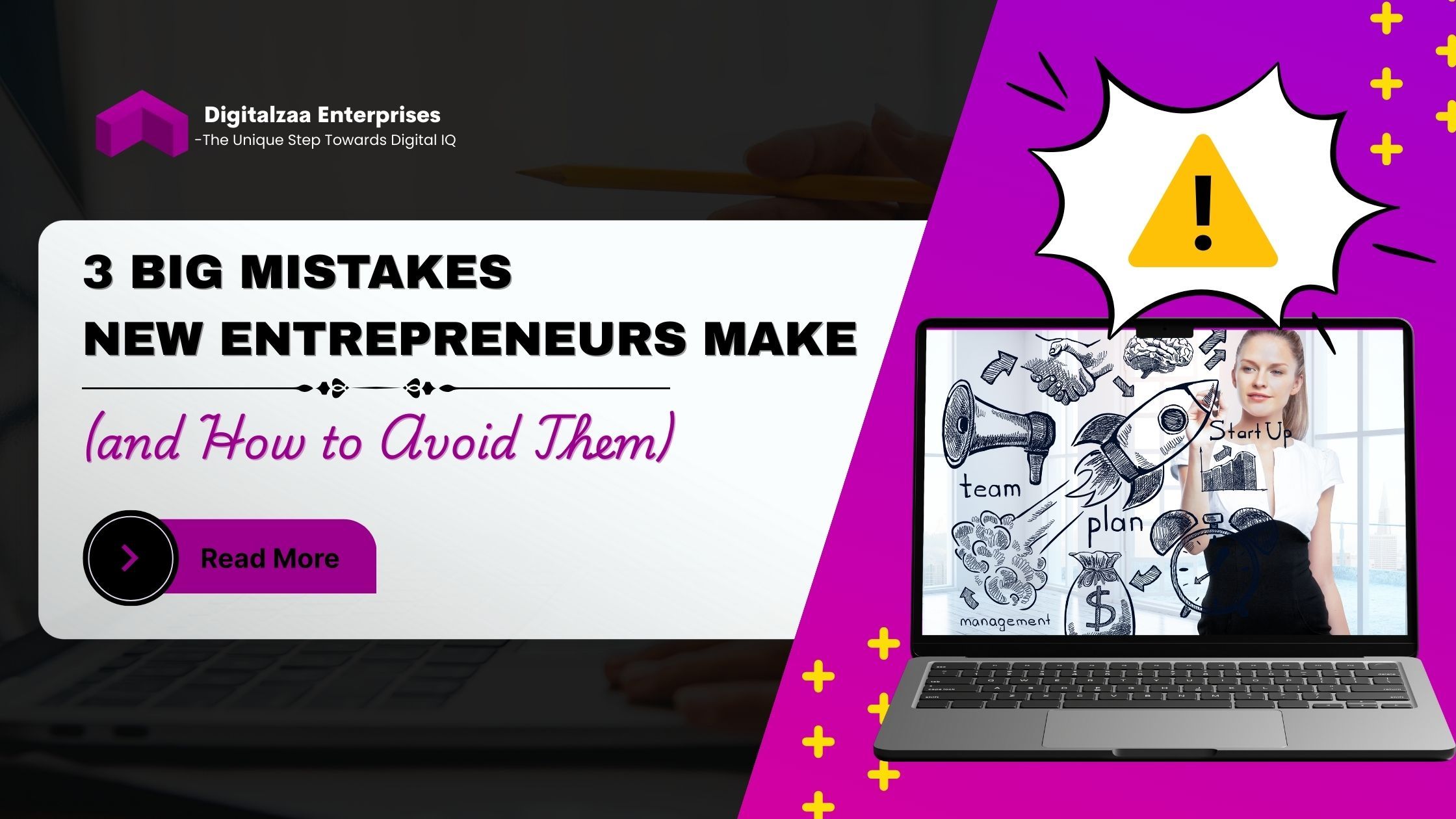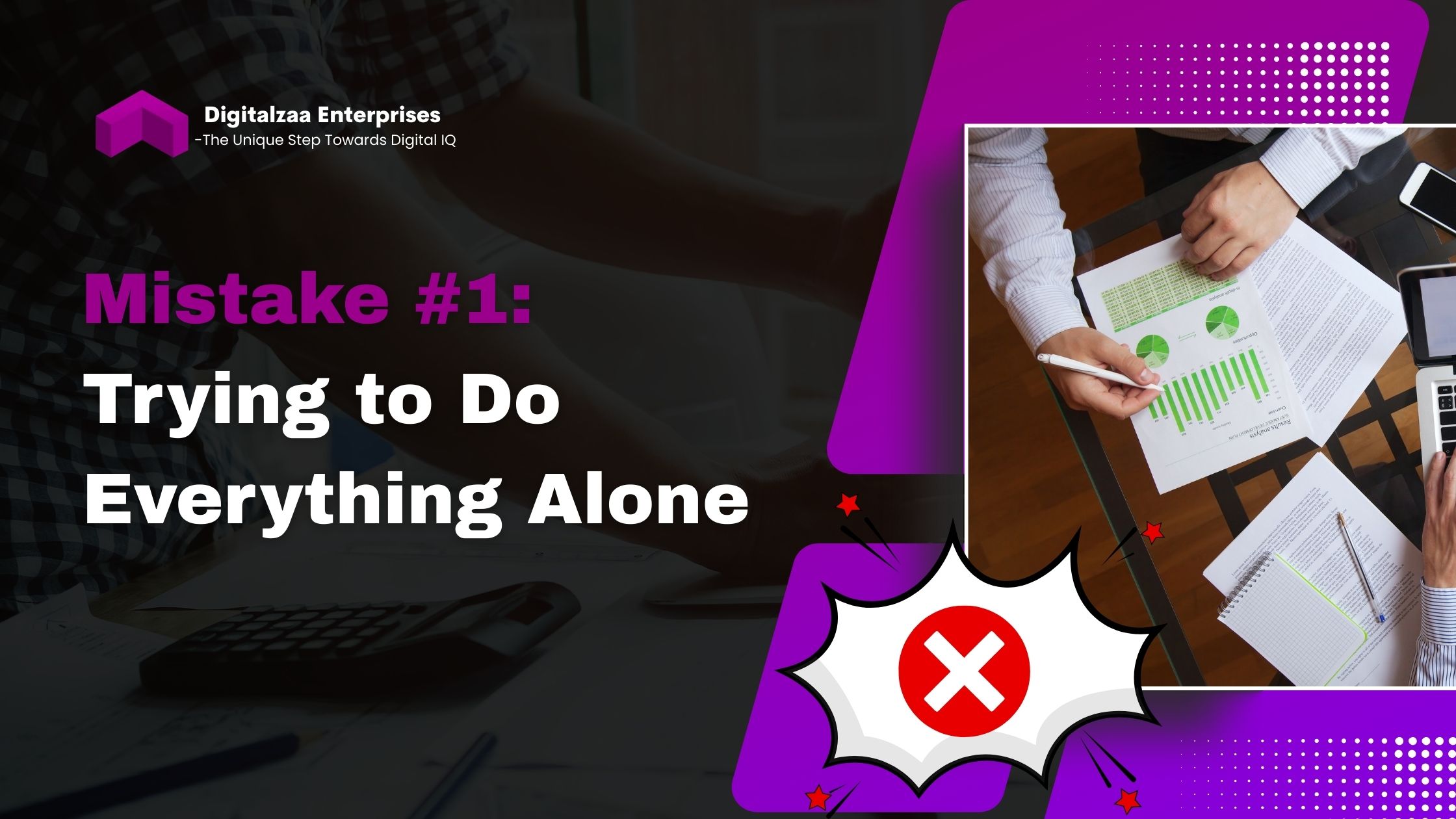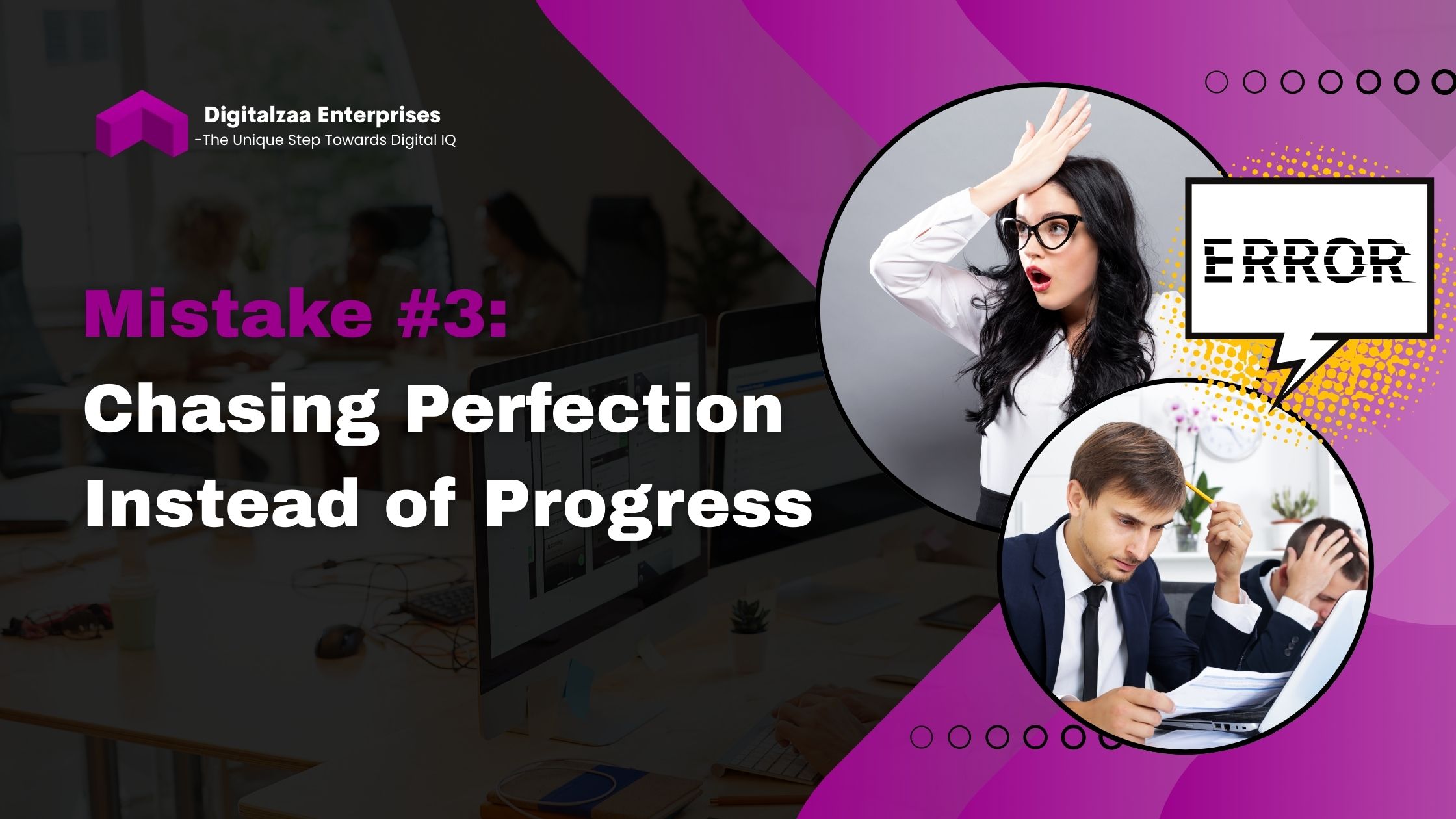3 Big Mistakes New Entrepreneurs Make (and How to Avoid Them)

Starting a business can be one of the most exciting and empowering journeys of your life—but it can also be filled with unexpected challenges, learning curves, and costly missteps if you don’t approach it with strategy and awareness.
New entrepreneurs are often bursting with passion, creative energy, and big visions for what they want to build. However, in that ambition, it’s easy to overlook some of the foundational steps that are crucial for long-term growth. Whether you’re launching a personal brand, a tech startup, an e-commerce store, or a service-based business, steering clear of the most common early mistakes can save you from frustration, burnout, and wasted resources.
In this post, we’re diving deep into the three biggest mistakes new entrepreneurs tend to make—and more importantly, how you can avoid them to build smarter, scale faster, and stay sane along the way.
Mistake #1: Trying to Do Everything Alone

When you’re in the early stages of building a business, it’s tempting to take on everything yourself. After all, you’re driven, you’re capable, and you care deeply about your vision. But being a one-person army—trying to juggle roles like CEO, marketer, designer, customer service rep, content creator, and accountant—is one of the fastest ways to hit burnout and stall growth.
Why It’s a Problem:
- Lack of expertise: You might be excellent in one area but lack the skill set in others. Spending hours trying to figure out design software or legal paperwork can drain your time and energy.
- Limited growth capacity: You're stuck in the weeds—answering emails, editing social media graphics, tweaking your website—rather than working on your business.
- Decision fatigue: Making every single decision, big or small, without external input can lead to mental overload, anxiety, and creative paralysis.
What to Do Instead:
- Start delegating early: Identify the tasks that aren’t in your zone of genius and either outsource them or use tools to automate them. Platforms like Fiverr, Upwork, or even virtual assistants can save you time.
- Use automation tools: Leverage apps like Zapier, Mailchimp, Hootsuite, or Dubsado to streamline tasks like scheduling, invoicing, lead capture, and client onboarding.
- Build your support system: Join entrepreneurial communities, masterminds, or local meetups. Surrounding yourself with other business owners helps reduce isolation and opens doors to guidance and collaboration.
Pro Tip: Think of yourself as a founder, not just a worker. Your job is to build a business, not do every task within it.
Mistake #2: Skipping Market Research
You’ve got a brilliant idea. You’re fired up. You’re ready to launch your new product, service, or course—but have you taken the time to validate that people actually want what you’re offering?
Many new entrepreneurs fall in love with their idea without testing it in the real world. They build beautiful websites, invest in branding, and start creating content—all before asking a single person in their target audience what they really need.
Why It’s a Problem:
- You solve a non-existent problem: Your product might be impressive, but if it’s not solving a real and pressing pain point, people won’t pay for it.
- Wasted resources: You could end up spending months building something that doesn’t sell, simply because you skipped validation.
- Weak marketing: Without knowing your audience’s language, pain points, and desires, your messaging will fall flat.
What to Do Instead:
- Talk to real people: Set up calls, send surveys, and run polls. Ask your ideal clients about their biggest struggles and what solutions they’re currently seeking.
- Pre-validate your idea: Before you build the full product, test interest with a waitlist, beta offer, or even a simple pre-sale page.
- Study your niche: Look at what’s already working. Analyze competitors’ offerings, read reviews, study their FAQs. What’s missing that you can offer better or differently?
Remember: Market research isn’t about slowing you down—it’s about speeding up success. It gives you confidence that you’re creating something people truly want and need.
Mistake #3: Chasing Perfection Instead of Progress

This is one of the most subtle but dangerous traps for new entrepreneurs: waiting until everything looks or feels “perfect” before putting it out into the world.
You want your Instagram feed to look polished. You delay your website launch until the copy is flawless. You hesitate to sell your offer because your course isn’t 100% complete. But in the process of chasing perfection, you lose precious momentum.
Why It’s a Problem:
- You delay feedback: Real improvement comes from real user feedback, which you can’t receive if you never launch.
- You slow down your learning curve: Progress fuels growth. Waiting too long stifles momentum and keeps you stuck in planning mode.
- You miss your moment: The market moves fast. While you're perfecting, someone else might already be delivering a “good enough” solution to your audience.
What to Do Instead:
- Embrace the MVP mindset: Launch a minimum viable product or service and improve it based on real-world usage and feedback.
- Prioritize consistent action: Create and share regularly, even if it’s not perfect. What matters most is showing up.
- Let go of fear: Perfectionism is often rooted in fear—fear of judgment, failure, or not being good enough. Reframe mistakes as learning tools, not roadblocks.
Fact: Most successful entrepreneurs didn’t start with polished brands. They started scrappy. They iterated. And they won by being in the game—not by waiting on the sidelines.
Bonus Tips for Smarter Entrepreneurship
Here are a few extra habits and strategies that can keep you grounded, focused, and resilient as you navigate the startup journey:
- Learn as You Grow: You don’t need a perfect plan to begin. Start now, adapt fast, and treat every stage as a learning opportunity. Podcasts, books, and online communities are invaluable resources.
- Build Systems Early: Even simple workflows can save you hours. Use tools like Trello, ClickUp, Notion, or Asana to organize projects, plan launches, and keep yourself accountable.
- Track Your Time: Use time-tracking apps like Toggl or RescueTime to discover how much of your day goes toward meaningful progress—and how much is being drained by distractions or low-impact tasks.
- Review Regularly: Set aside monthly CEO days to review key metrics, customer feedback, and progress toward goals. Reflection helps you pivot strategically and stay aligned with your vision.
Conclusion: You Don't Have to Be Perfect—Just Purposeful
Here’s the truth most successful entrepreneurs won’t tell you upfront: Everyone makes mistakes. The difference between those who build thriving businesses and those who burn out lies in how they respond to those mistakes.
If you’ve been trying to do everything alone, skipping research, or holding back because things aren’t “just right,” you’re not failing. You’re simply learning and learning is part of the process.
Now that you know what traps to avoid, here’s a simple action plan:
- Start outsourcing or automating tasks that drain your time and energy.
- Talk to real people. Ask questions. Listen to your audience.
- Launch something before you feel completely ready.
The sooner you take action—even imperfect action—the faster your business will evolve.
So go ahead: take the leap, stay consistent, and remind yourself that clarity comes through movement, not perfection.
Your future business doesn’t need flawless—it needs forward.


